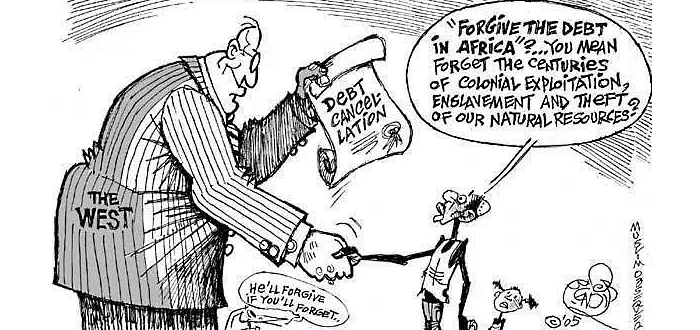
WBG WANTS NIGERIA

WBG - Nigeria's GDP growth reached 0.8 percent, driven by an expansion in oil output and continued steady growth in agriculture. The decline in the non-oil, non-agriculture sector however continued, as aggregate demand remained weak and private sector credit low. The rates of unemployment and underemployment increased in 2017 and poverty is estimated to have increased slightly. GDP growth in 2018 is expected to hover just over 2 percent, largely oil sector-driven.
Nigeria has a big home market which is constrained by limited connective infrastructure thereby reducing producers and firms' ability to reach wider markets. This lack of connectivity dampens economic collaboration and cooperation among the country's regions, limiting market integration and reducing producers and firms' ability to reach wider markets. Spatial fragmentation and limited connections also hurts welfare and prospects for poverty reduction.
"Spatial integration and sub-national specialization are key for creating a nationally-integrated market for goods and services as well as attracting much-needed private investment, which in turn could enhance productivity though scale and specialization," said Somik Lall, Global Lead, Territorial Development at the World Bank.
Nigeria would benefit from policies to promote spatial integration and sub-national specialization which would stimulate diversified, long-term growth. This can be achieved through market specialization and differentiated positioning strategies for industrial clusters across the country, according to the report. The key challenge for policymakers at the federal and state level is to identify interventions (policy, regulatory, institutional and investment, etc.) that are best suited to realize development potential of sub national regions and integrate domestic markets.
For Nigeria to tap its spatial drivers of development, policymakers may want to focus on investments that reinforce clusters and economies of scale; optimize the connectivity between rural areas and the major urban markets; and address structural and land management issues in major urban nodes and along major growth corridors to remove or alleviate barriers that undermine the growth potential.
-----
Earlier:

2018, March, 18, 11:25:00
NIGERIA NEED CHANGESPLATTS - The objective of this program is to increase its domestic refinery utilization rates to 90% from current levels of 10-20%, Kragha said speaking to Platts in Cape Town on the sidelines of the African Refiner Association conference. |

2018, February, 14, 09:35:00
NUCLEAR FOR NIGERIAWNN - Nigeria's first research reactor - a 30 kW Chinese Miniature Neutron Source Reactor similar to units operating in China, Ghana, Iran and Syria - was commissioned at Ahmadu Bello University in 2004. The reactor has been used for the analysis of materials and training. The IAEA is assisting with the conversion of that reactor to low-enriched uranium (LEU) fuel and the repatriation of its irradiated high-enriched uranium (HEU) fuel to China. |

2018, January, 26, 12:15:00
NIGERIAN OIL PRICE: $45-$46BLOOMBERG - “We’ve gotten to a point where we don’t care,” whether prices will be sustained at the level that they have recently risen to, Adeosun said during an interview in her office in the capital, Abuja. “We’ve been able to balance our budget at $45-$46 per barrel and we’ve got to learn to live comfortably at that level.” |

2018, January, 8, 19:10:00
NIGERIA'S FUEL DEFICITBLOOMBERG - A bigger problem is that Nigeria caps gasoline prices, often at levels below retailers’ costs. The cap today is set at 145 naira, or $0.40, a liter, which would translate to $1.52 per gallon. |

2017, December, 27, 12:20:00
NIGERIA'S CHALLENGESIMF - Overall growth is slowly picking up but recovery remains challenging. Economic activity expanded by 1.4 percent year-on-year in the third quarter of 2017—the second consecutive quarter of positive growth after five quarters of recession—driven by recovering oil production and agriculture. |

2017, September, 15, 08:50:00
NIGERIA NEEDS TIMEEmmanuel Kachikwu, Nigeria’s minister of state for petroleum resources, told the Financial Times that the west African nation’s energy sector was still suffering from years of violent disruptions and needed more “recovery time” before joining a supply deal agreed last year between some of the world’s biggest oil producers.
|

2017, April, 12, 17:30:00
WBG - AFRICA'S ECOMOMIC DIFFICULTIESNigeria, South Africa, and Angola, the continent’s largest economies, are seeing a rebound from the sharp slowdown in 2016, but the recovery has been slow due to insufficient adjustment to low commodity prices and policy uncertainty. Furthermore, several oil exporters in the Central African Economic and Monetary Community (CEMAC) are facing economic difficulties. |





